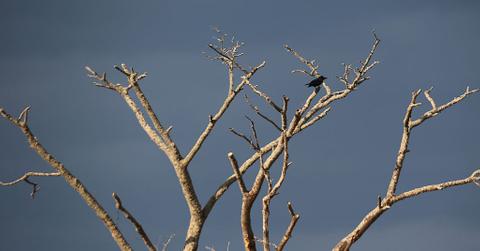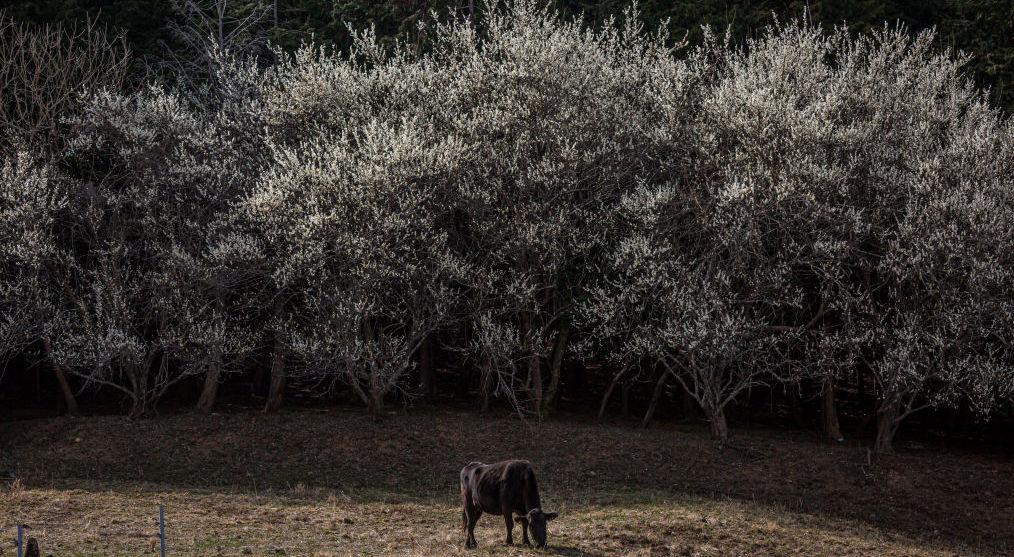The Fukushima Disaster Caused Nuclear Mutations in Both Plants and Animals
Published May 16 2023, 2:02 p.m. ET

The Fukushima nuclear disaster of 2011 resulted in a myriad of consequences, including nuclear mutations. Radiation exposure from the event negatively affected a wide variety of plants and animals.
Keep reading to learn more about the Fukushima disaster nuclear mutations, the conditions of these populations today, and how shifting to renewable energy could help avoid this occurrence in the future.
Radiation from the Fukushima disaster affected plants and animals.

Soon after the Fukushima disaster, scientists found that many different plants and animals were impacted. The most commonly known organisms affected by the radiation are Japanese flowering cherry trees, Japanese cedar trees, earthworms, butterflies, mice, barn swallows, goshawks, and wild boar.
According to Business Insider, scientists said that radiation exposure caused DNA damage in wild boar, barn swallows, mice, and earthworms. There’s also a possibility that contaminants from the disaster impacted goshawk reproduction.
A 2014 study from the European Journal of Wildlife Research examined DNA damage in wild boars and earthworms living in different regions. Scientists found that the DNA damage in wild boars from different regions didn’t differ greatly, but the damage in earthworms did — this could be due to the accumulation of radioactive materials in the soil and plants. The results of this study suggest that the risk of DNA damage varies among species.
Butterflies were also affected by the disaster. Scientists collected samples near the power plant and found that 12 percent showed signs of nuclear mutations. Six months later, more butterflies were collected, and the results showed a significant increase in abnormalities and mutations, as NBC News reported in 2012.
Scientists said that the mutations found in butterflies could be indicative of other species being impacted. These findings reflected just how much the nuclear disaster affected the local ecosystem.

Trees like the Japanese cedar and Japanese flowering cherry were heavily impacted, too. Greenpeace shared worries regarding the radiation found in leaves and growth mutations found in fir trees. These past concerns were valid; however, both plant and animal populations appear to be doing much better.
Today, these populations are recovering.

According to an April 2023 study published by ScienceDirect, the nuclear disaster does not present a threat to trees growing in affected areas. Researchers found that there weren’t any significant increases in mutations in either Japanese cedars or Japanese flowering cherry trees. They also found that exposure to small amounts of radiation does not lead to genetic issues.
In terms of the animals impacted by the disaster, scientists say that the animal populations appear to be growing despite any lingering radiation, according to Business Insider. The study was published in Frontiers in Ecology and the Environment and it shared observations of wildlife in the evacuation zone.
These observations proved the resilience of the animals living in the area. Regardless of contamination, many species were found in abundance — this suggests that if radiation has any effect on these animals, it’s at an individual or molecular level. It seems that a natural rewilding of sorts has occurred in these abandoned areas.
Based on all the information above, it’s clear that nuclear energy can present some risks to wildlife. Opting out of nuclear power and shifting to renewable energy instead is one way to reduce the risk of an event like this occurring again.